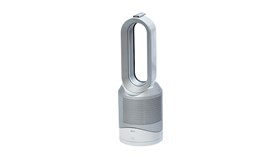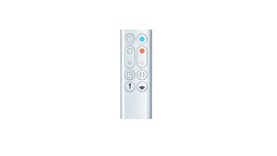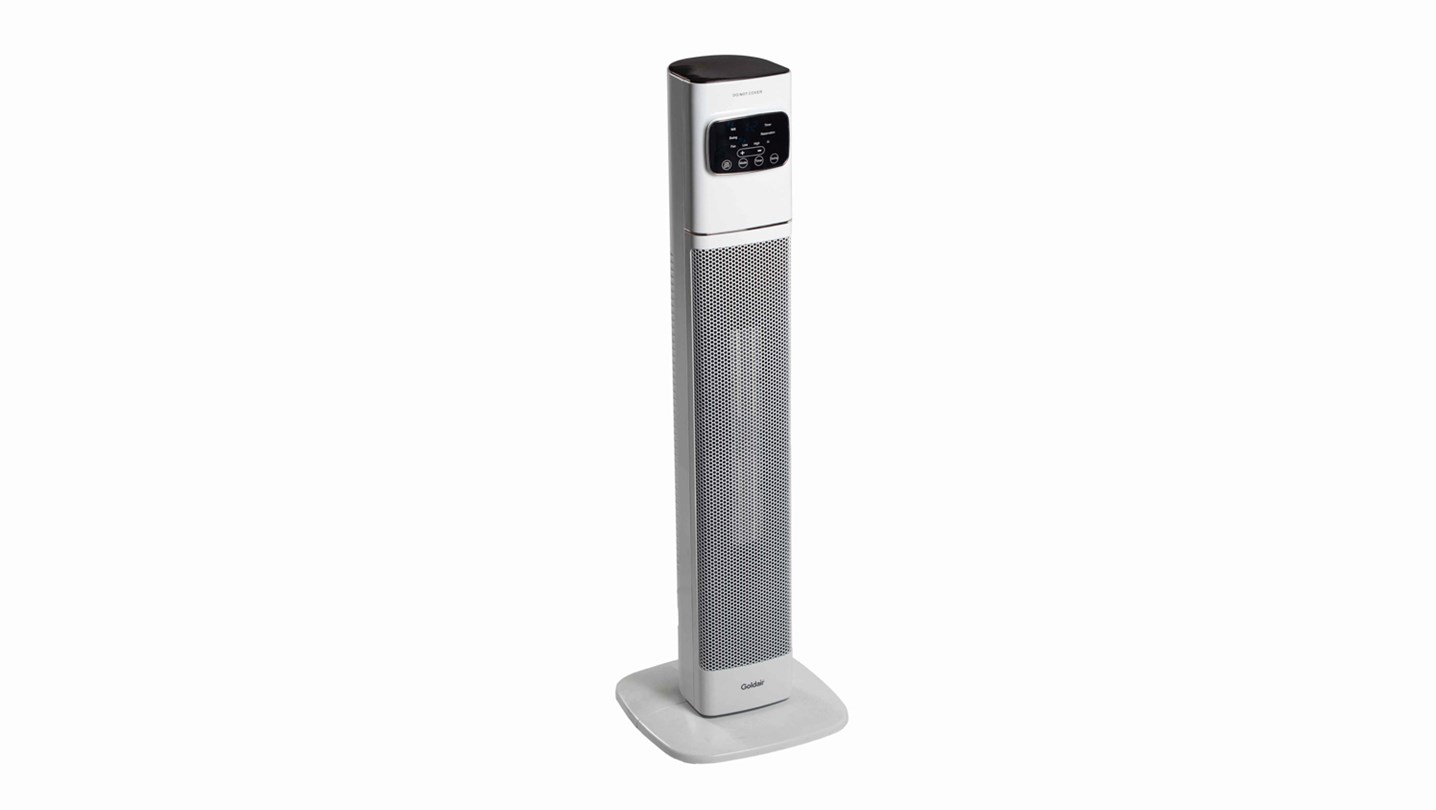Dyson HP00 review
Tower electric heater. Priced at $749.



Good points
Bad points

Unlock our expert review and more
- Reviews and ratings you can trust
- Easy side-by-side comparison
- Recommended products at a glance
-
Heater type
View more details.
- Radiant heaters are personal heaters. They radiate heat from a red-hot heating element.
- Convection and panel heaters draw cold air over an electric heating element. The warmed air then leaves the heater and rises towards the ceiling, while cooler air moves in to replace it. This includes oil-filled column heaters.
- Fan heaters are specifically designed to blow hot air – the fan is a key part of the heater design, rather than a booster as on other heater types. Their fans are usually more powerful and can project hot air a reasonable distance into the room.
- Fan
-
Design
View more details.
This is the basic form factor of the heater, such as panel, column, tower, fan or radiant. We include whether the heater has a ceramic heating element; these cool faster than metal elements and can be safer, but we've found they don't necessarily make for better heating performance.
- Tower
-
Recommended
View more details.
We recommend heaters with a CHOICE Expert Rating of at least 70% and at least 70% for heating performance. We don't recommend models that fail any of our safety tests.
-
CHOICE Expert Rating
View more details.
The CHOICE Expert Rating is made up of heating (70%) and ease of use (30%). We don't recommend any models that fail any of our safety tests.
-
Heating score
View more details.
Based on heating speed, heat distribution and thermostat performance.
-
Ease of use score
View more details.
Equally weighted between labelling and use of controls, the heater's mobility and stability on hard surfaces and carpet, and ease of cleaning.
-
kWh at maximum over 2 hours
View more details.
The number of kWh used over two hours with the heater on max. You can multiple this by your own electricity cost to get a more local cost to you.
-
Comparative energy efficiency
View more details.
A comparative rating, based on power used versus temperature rise achieved in the performance test. The better models usually rate as 'good' or better; acceptable models are 'OK'; and 'borderline' means mediocre. Note that some models might have good efficiency but still perform poorly in other respects (e.g. they may use little energy, but don't deliver their heat effectively). See our article on how we test electric heaters for details.
-
Noise with fan on (dBA)
View more details.
40dBA is very quiet, while 60dBA is equivalent to normal conversation and enough to be disruptive when watching TV, for example. Most fans have one fan setting, apart from a few which have 10. We measure on the maximum fan setting. 'N/A' refers to heater models without a fan.
-
Passes safety tests
View more details.
Our testers check electrical safety, measure surface temperatures, and carry out a tilt test. They also check which heaters continue heating when on their sides, as if they'd been knocked over. See our article on how we test electric heaters for details.
- Pass
-
Shop Ethical rating
View more details.
Shop Ethical rates the environmental and social impact of the company (not the product) using independent sources. This rating is not included in our total score. The rating ranks from A (highest) to F (lowest). N/A means there is no rating for that company.
- D
-
Warranty (years)
View more details.
Stated warranty of the heater. You're still covered by the Australian Consumer Law regardless of the manufacturer warranty.
- 2
-
Country of origin
View more details.
Where the heater was manufactured, though parts may have been sourced from other places.
- Malaysia
-
Availability
View more details.
'Tested model' refers to heaters that are currently available in shops and online, while 'Discontinued model' refers to heaters that are no longer available in shops, but may be available second-hand.
- Tested model
-
Price
View more details.
Recommended or typical retail price at the time of publication.
- $749
-
Running costs for 2 hours
View more details.
How much the heater costs to run over 2 hours, based on running at the highest heat setting, with electricity at 40c/kWh.
-
Running costs in winter
View more details.
Based on running the heater for 500 hours during winter (approximately 6 hours a day for 3 months), with electricity at 40c/kWh.
-
Fan settings
View more details.
The number of settings the fan has when used with a heater.
- 10
- Heat settings
- Not stated
- Claimed maximum wattage
- 2090
-
Weight (kg)
View more details.
Weight in kilograms, rounded.
- 4
-
Cord length (m)
View more details.
Length of the power cord in metres, rounded.
- 1.8
- Dimensions (cm, H x W x D)
- 63 x 22 x 22
-
Company
View more details.
As far as we can discern, the owner of the brand.
- Website
- dyson.com.au
-
Fan
View more details.
Whether the heater has a fan to help spread the heat around the room.
- Yes
-
Remote control
View more details.
Whether this model has a remote control.
- Yes
-
Castors and wheels
View more details.
Whether this model has castors or wheels to make it easier to move about.
- No
-
Carry handle
View more details.
Whether this model has one or more carry handles to make it easier to move about.
- Yes
-
Oscillation
View more details.
Whether this heater has a oscillate function, moving the air flow side to side or up and down, to spread the heat through the room.
- Yes
-
Wall mountable
View more details.
Some heaters have the option of being permanently mounted on a wall. Check the good points to see if a wall-mount kit is included or an optional extra.
- No
-
Lock
View more details.
Whether this model has a lock function, to prevent the heater being turned on by children or by accident.
- No
-
Frost watch
View more details.
Useful for colder climates where the temperature could drop below 0°C, the frost watch feature is claimed to maintain a temperature of around 5°C, avoiding frost or freezing in the room and with relatively little power consumption. We don't test this feature.
- Not stated
-
Timer
View more details.
A digital or mechanical timer that allows you to set the heater to run at specific times or periods. Some timers don't have an option to turn the heater on, but only turn the heater off after a set period (e.g. so that it won't run all night).
- Yes
-
App compatible
View more details.
Whether you can control the heater via an app on your smartphone.
-
Thermal cut-out
View more details.
Prevents the heater from overheating and potentially causing damage or even a fire.
- Yes
-
Thermostat
View more details.
Maintains a pre-set temperature.
- Yes
-
Tilt switch
View more details.
Switches the heater off if it tilts over or falls. We've found some models that don't state whether they have one, but still turn off when pushed over.
- Yes
-
Fan-only option
View more details.
For models with a built-in fan, can the fan be used on its own without heating? This is handy for cooling in summer. N/A = not applicable (this heater has no fan).
- Yes
-
Cord storage
View more details.
Whether the power cord can be neatly stored, such as on hooks on the heater, when moving or packing away the heater.
- No








